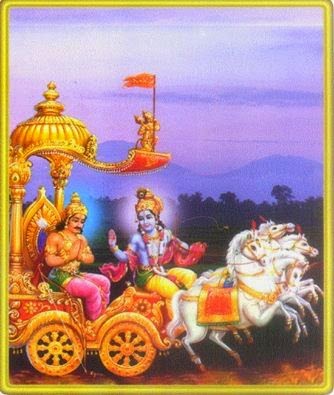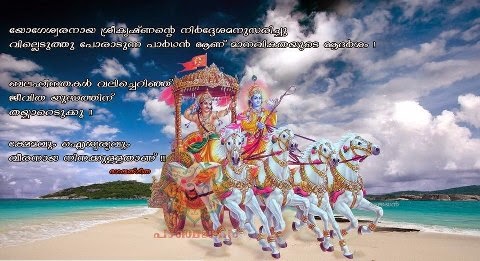Gita : Ch-3. Slo-35.

Srimad Bhagavad-Gita : Chapter--3. ( karma-yogam ) Slokam-35. { It is far better to discharge one's prescribed duties, even though they may be faulty, than another's duties. Destruction in the course of performing one's own duty is better than engaging in another's duties, for to follow another's path is dangerous. } Sreyan svadharmo vigunnah paradharmat svanushttitat, svadharme nidhanam sreyah paradharmo bhayavahah. sv-anushttitat = than the properly followed, perfectly done; para-dharmat = duty prescribed to others; vigunnah = even not good (not upto the standard) of; sva-dharmah sreyan = one's own prescribed duty, is far better; sva-dharme = following in one's own prescribed duty; nidhanam sr...
.jpg)
.jpg)





.jpg)






